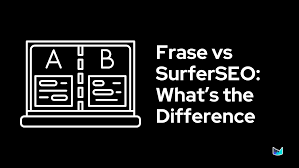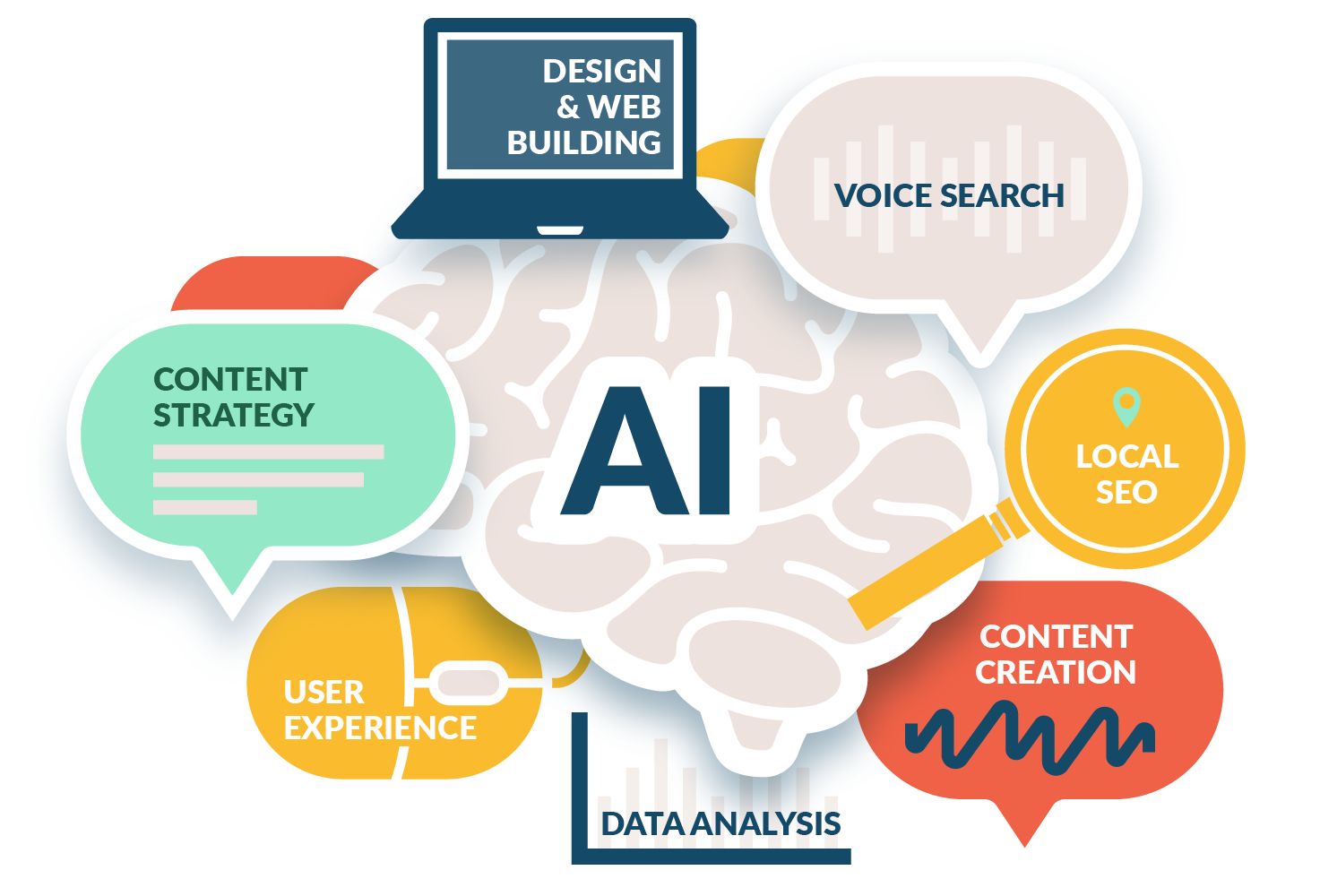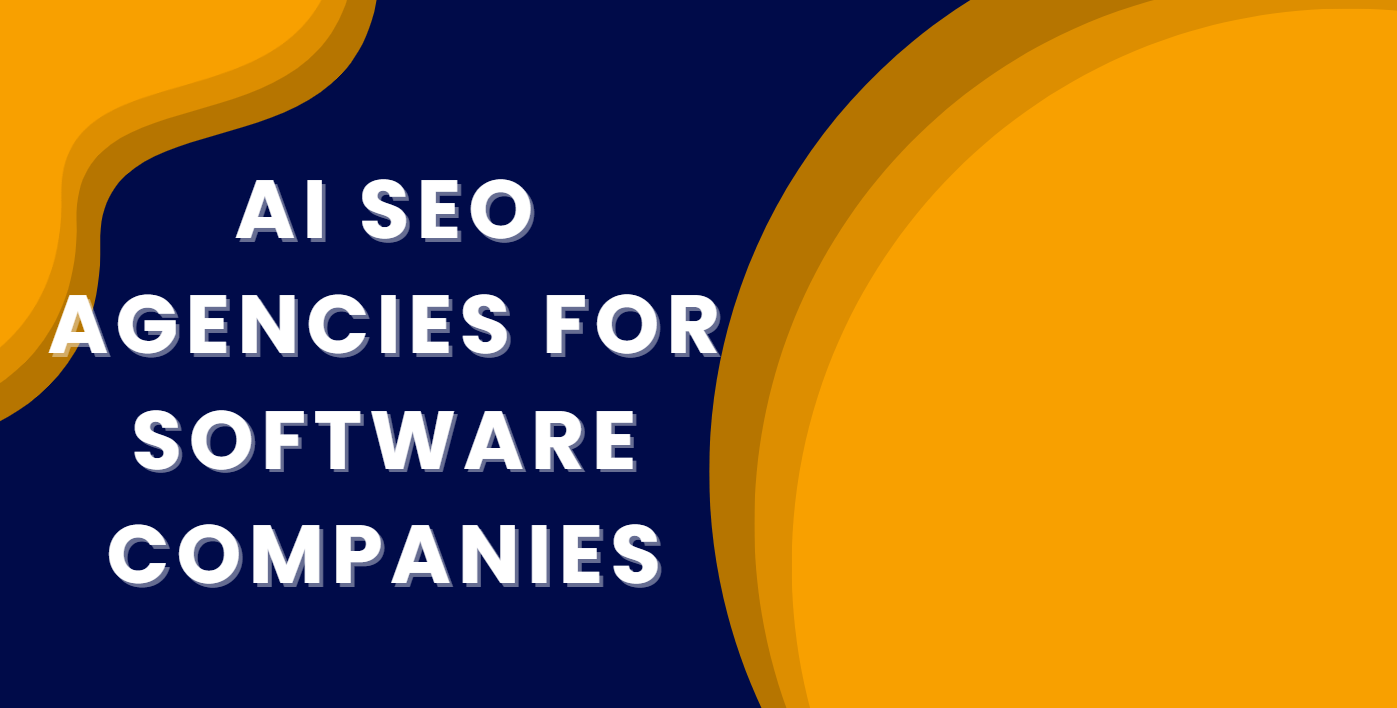Google processes 5.9 million searches every minute, which adds up to 3 trillion searches each year. AI’s role in SEO isn’t a distant possibility – it’s already changing how people search for information online.
The big question on everyone’s mind: will AI completely take over SEO? This concern grows as AI search features now show up in 47% of Google results. Ahrefs data shows that people have declared SEO “dead” 4,852 times since January 2016. Yet SEO adapts and evolves instead of vanishing. AI brings change to SEO, but the evidence points to evolution rather than extinction. A GlobalData survey reveals that AI has brought major changes to more than 50% of businesses, but change doesn’t mean replacement.
This piece gets into what’s really happening between AI and SEO. You’ll find why AI searches have caused a 15-25% drop in organic traffic. You’ll also learn how AI tools provide instant answers and what skills you’ll need as SEO continues to evolve. The numbers tell us that 90 million Americans will use AI for search by 2027. Now is the right time to understand SEO’s true future.
How AI is Already Changing SEO
AI has already made itself at home in SEO’s world. The digital world has seen fundamental changes as AI powers the algorithms that drive our search engines. These changes are altering the map of SEO as we speak.
Smarter search algorithms and intent recognition
Search engines do more than match keywords now. They interpret users’ actual needs. AI-powered search algorithms use Natural Language Processing (NLP), machine learning, and deep learning to understand search queries with amazing accuracy.
This progress creates a more natural search experience. AI figures out what you mean when you type something unclear. To cite an instance, deep learning models can achieve 70% accuracy in top-1 predictions and 92% in top-5 predictions when they identify customer intent from search queries.
Context plays a huge role in this new AI-driven search world. The same query means different things based on:
- Your search history
- Your location
- Time of day or season
- Previous interactions with search results
Search engines use this contextual understanding to deliver customized results that match your needs. Online retailers see a 2-5% increase in revenue per session through this direct understanding of intent.
Rise of AI-generated content and automation
Google’s view on AI content might catch you off guard. Their statement is clear: “Our focus on the quality of content, rather than how content is produced, is a useful guide that has helped us deliver reliable, high quality results to users for years”.
Quality, originality, and relevance matter more than who or what created the content. Results tell a mixed story though. A survey reveals 46% of respondents say AI helped their pages rank higher, while 36% saw no difference, and 10% noticed lower rankings.
AI content’s limits have become more obvious. Many AI models can’t identify if their information is accurate or reliable. They might use outdated, wrong, or biased information. On top of that, AI-generated content often lacks the human touch and personality that keeps readers engaged.
Automation has found its place in content creation. Google acknowledges that “Automation has long been used to generate helpful content, such as sports scores, weather forecasts, and transcripts”.
Impact on keyword research and content planning
AI has changed keyword research completely. AI-powered tools that analyze big data sets in minutes have replaced traditional manual methods.
These tools understand keywords beyond simple identification. AI algorithms identify search intent and suggest keywords matching different buyer journey stages – from information seeking to purchase ready.
AI excels at finding long-tail keyword opportunities by analyzing:
- User queries
- Trending phrases
- Related topics
- Semantic connections
It can predict emerging keywords before competition heats up. AI analyzes historical search data, seasonal patterns, news stories, and social media trends to forecast future search behavior.
Content planning has evolved too. AI tools now generate content ideas from keywords, study top-performing pages for optimization insights, and create content outlines covering essential topics and subtopics.
Despite these changes, one fact stands out: AI makes SEO smarter, faster, and more strategic rather than replacing it. The real question isn’t if AI will change SEO, but how quickly you’ll adapt to these existing changes.
The Role of AI Tools in Modern SEO
SEO professionals now have AI tools that turn raw data into applicable information. These tools do more than save time—they find patterns that humans might overlook.
Content optimization and SERP analysis
AI tools have changed how we create content. They analyze hundreds of top-ranking pages to find key points, statistics, and common viewpoints. This goes way beyond simple keyword research.
AI tools help improve existing content by identifying semantically relevant terms, entities, and concepts missing from your pages. They also adjust content structure and reading level based on what works best in your niche.
AI SEO platforms can:
- Detect content gaps and differentiation opportunities
- Analyze competitor content at scale
- Suggest ways to improve readability and structure
- Improve keyword placement and density
Google values content quality whatever the creation method. Their helpful content system rewards content we created mainly for people, not search engines. The best AI tools help create content that shows E-E-A-T (expertise, experience, authoritativeness, and trustworthiness).
Technical SEO audits and issue detection
AI has moved technical SEO from reactive problem-solving to predictive optimization. AI systems spot unusual patterns in site structure, server response codes, and crawl behaviors instead of following simple rules.
AI-powered audits work better than traditional methods. They can estimate the traffic and ranking effect of specific technical issues using historical data. They prioritize fixes based on business impact rather than generic severity scores. Some systems even fix common technical problems automatically.
Botify uses AI to copy how search engine bots crawl websites. This helps find potential technical SEO problems before they hurt rankings. Lumar (formerly DeepCrawl) uses machine learning algorithms to analyze deeply and spot technical issues automatically.
Predictive analytics and trend forecasting
AI’s most valuable contribution to SEO might be its ability to predict trends. AI systems spot emerging trends before they become competitive by analyzing search patterns. They can check millions of SERPs live to find ranking patterns impossible to spot by hand.
AI algorithms interpret historical search data, industry trends, and external factors like seasonal events for predictive analysis. Businesses can make proactive decisions during high traffic periods because of this. Poker sites utilize predictive analysis to spot seasonal trends around major tournaments. This helps them improve content and adjust keyword bidding strategically.
AI models look beyond keywords to include external factors that affect search behavior. Businesses can adjust SEO strategies live instead of reacting to changes after they happen.
AI in SEO changes more than optimization methods—it expands what we can achieve. SEO professionals who learn to cooperate with these powerful tools will succeed as AI keeps advancing.
How AI is Reshaping Search Behavior
AI technologies have redefined how people find information online. The changes go beyond simple algorithm updates and have transformed user interactions with search engines.
Voice search and conversational queries
Voice-activated assistants have transformed search patterns. Users now speak naturally instead of typing fragmented keywords – the Google App reports 20% of searches happen through voice. This number will grow to 50% of all searches by 2030.
People expect conversational interactions with search engines. They no longer type “best HVAC service” but ask complete questions such as “Who’s the best HVAC service in Seattle?”. Natural dialog has made search queries longer and more question-based. Question modifiers like “what,” “how,” and “why” start 31.6% of queries that trigger AI responses.
The future of SEO looks different. Search engines must understand context across multiple queries. A user might ask “Who won last year’s World Cup?” and follow up with “Who was the top scorer?” without adding context. Content creators need to optimize for natural language rather than stuff keywords.
Visual search and image-based results
Users can now find information using images instead of text. LinkedIn data shows the global visual search market will reach $28 billion by 2027, with a steady 17% CAGR from 2022 to 2030.
Gen Z leads this trend, preferring visual search over text-based options. Google Lens processes over 10 billion monthly searches. Users can:
- Take photos of items they want to identify
- Upload screenshots from social media
- Snap pictures of signs or menus in foreign languages
- Capture products they want to purchase
Visual search creates a continuous connection between physical and digital worlds. Users can discover products instantly when inspiration strikes.
Zero-click searches and AI overviews
AI-generated summaries have changed how users interact with search results. These AI Overviews appear in 13.14% of all queries as of March 2025 – up from 6.49% in January. Users get answers directly on search results pages without visiting websites.
Traditional SEO metrics show dramatic changes. AI Overviews reduce paid CTR from 21.27% to 9.87%. Organic CTR drops from 2.94% to 0.84% – a 70% decline. Bain’s research reveals that 80% of consumers rely on zero-click results for at least 40% of their searches.
Content creators provide value without earning visits or conversions. Visibility might become more important than clicks. The old model of creating content to earn clicks faces pressure as users find complete answers without leaving search results pages.
Will SEO Be Replaced by AI?
AI’s impact on search has turned a theoretical question into reality. Many people now wonder if human SEO experts will soon lose their jobs. The truth lies somewhere in between.
Limitations of AI in real-time indexing
AI has impressive abilities but faces major constraints. AI systems depend on training data that gets old fast. Today’s large language models can’t tap into up-to-the-minute information, and most use data that ends in 2021. This creates a big blind spot for time-sensitive SEO work.
AI doesn’t deal very well with context either. Algorithms can process huge amounts of data but miss the subtle understanding needed for good SEO strategy. You could call it having knowledge without wisdom – AI knows the facts but misses those natural connections humans make without thinking.
Why human insight still matters
Human SEO specialists bring unique qualities that can’t be replaced:
- Natural creativity and emotional intelligence that AI can’t copy
- The wisdom to pick tactics that fit each situation
- Knowing how to build relationships and get things done
A SEMrush survey reveals 53% of SEO experts believe human skills are vital for website success. This makes perfect sense given office politics, budget limits, and brand voice subtleties that AI just can’t handle.
The synergy between AI and human SEO
The path forward points to working together. AI shines at analyzing data, spotting patterns, and handling routine tasks. Humans excel at planning, creative thinking, and emotional connections.
Balance makes the difference. Research shows teams using both AI and human strategy can boost search rankings by 20%. Moz studies confirm this partnership works better than either method alone.
“AI won’t replace humans, but humans with AI will replace humans without AI,” states Harvard Business Review. This captures tomorrow’s SEO landscape perfectly – not replacement but improvement.
By February 2024, 42% of marketing leaders had started using AI tools to create content. These tools work best with human guidance, creating a powerful partnership that outperforms either working solo.
The Future of SEO Industry in an AI-First World
The SEO world will revolutionize as AI becomes the heart of search. Your strategy needs to adapt to these changes.
From SEO to AEO (Answer Engine Optimization)
The move from traditional Search Engine Optimization to Answer Engine Optimization brings a fundamental change in strategy. You’ll need to make your content the go-to source for AI systems instead of competing for clicks. Traditional search engine volume will drop 25% by 2026, while search marketing will lose market share to AI chatbots and virtual agents.
AEO aims to provide definitive answers to specific questions. Voice commerce’s projected value of $80 billion shows how these interactions have become most important. Your content should answer questions in a natural, conversational way that matches how people talk.
Importance of E-E-A-T and people-first content
Google’s Quality Rater Guidelines emphasize Experience, Expertise, Authoritativeness, and Trustworthiness (E-E-A-T) to determine content quality. This framework becomes crucial in an AI-driven digital world.
E-E-A-T matters for all optimization approaches. Google gives priority to content that shows first-hand experience and expertise as AI-generated content floods the internet. This focus on “people-first” content balances against mass-produced AI text.
Preparing for AI-first search engines like SGE and Gemini
Google’s Search Generative Experience (SGE) and Gemini show us where search is headed. Users have turned to AI Overviews billions of times through Search Labs. Data shows increased search activity and higher satisfaction with results.
This trend brings good news for your strategy. AI Overviews send more clicks to websites than traditional listings for identical queries. They also direct traffic to diverse sites, especially for complex questions.
You should create unique content that answers user questions directly. Google will soon handle complex queries like “find the best yoga studios in Boston and show me details on their intro offers and walking time from Beacon Hill”. Your content needs to address these multi-part questions in detail.
Success awaits those who adapt. AI will change SEO – your success depends on how well you evolve with it.
Conclusion
The Truth About AI and SEO: Transformation, Not Extinction
AI hasn’t killed SEO. It has fundamentally changed how SEO works. This piece shows how AI algorithms now understand search intent beyond simple keyword matching. AI tools now help us analyze SERPs, audit technical issues, and predict trends with remarkable accuracy.
Organic traffic has dropped 15-25% due to AI searches, but this doesn’t spell doom for SEO professionals. Data clearly points to an ongoing transformation. AI excels at processing big amounts of information but lacks strategic thinking and emotional intelligence. The future belongs to professionals who blend AI efficiency with human creativity.
Numbers tell the real story. SEO has reportedly “died” 4,852 times since January 2016, yet continues to thrive. The approach changes, not the need for optimization.
Moving from traditional SEO to Answer Engine Optimization represents the most important development yet. Your content must serve as the definitive source that AI systems reference. Google prioritizes “people-first” content above mass-produced AI text, making first-hand experience and expertise more crucial than ever.
New skills are essential for this era. Your understanding of search intent, content quality, and technical optimization remains valuable. You’ll apply these skills in a new framework that has AI collaboration.
SEO’s survival isn’t the question—your adaptation speed to its AI-boosted future is. About 90 million Americans will use AI for search by 2027. The chance lies in becoming skilled at this collaboration now, before your competitors do.
SEO isn’t dying. It grows and changes. Those who adapt will thrive.



